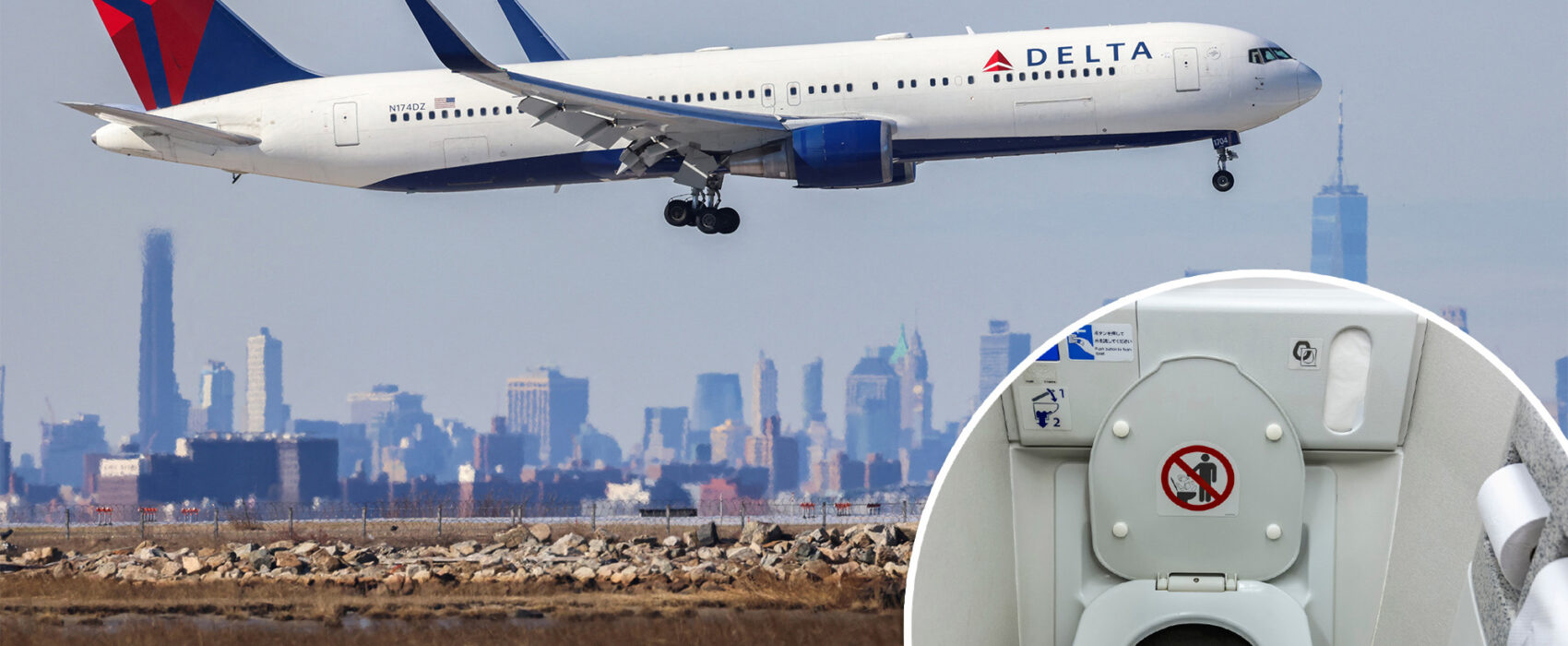By fypfeed | News | 9th August 2025
In-Flight Diarrhea What was supposed to be a normal journey became a media-grabbing disaster due to a sudden illness of one passenger. caused United Airlines to cancel an entire flight.
For Meghan Reinertsen who is a nanny and an hopeful actor in her home in the United States, the ordeal began with an unimportant stomach pain, but quickly turned into a logistical and medical incident that disrupted journey plans of hundreds and triggered a complete hazardous response.
A dark night over the sky
Reinertsen returned from Portugal in which she attended a tiny independent film premiere. She was on an United Airlines flight departing Indianapolis when she became aware of “a disturbance deep, deep” in her stomach.
“Something was brewing,” she later revealed to that her twenty million TikTok viewers. “Something was happening that I was not prepared to deal with.”
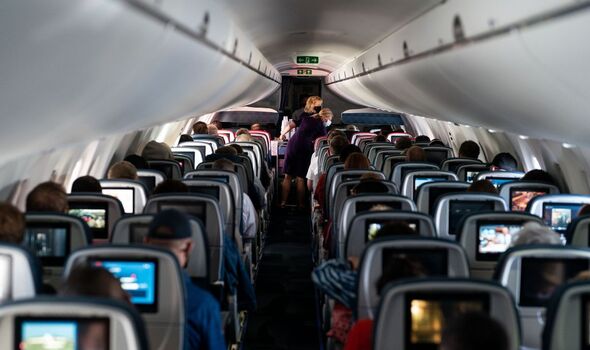
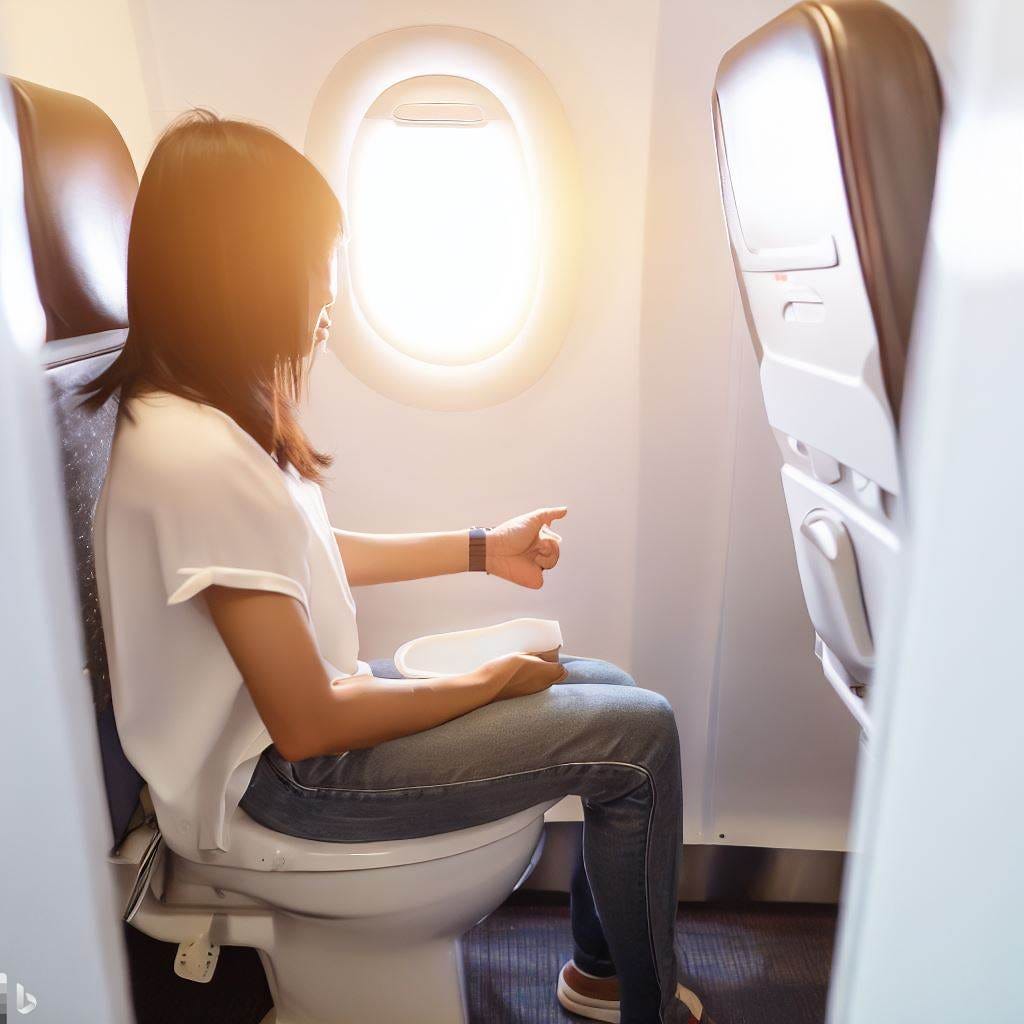
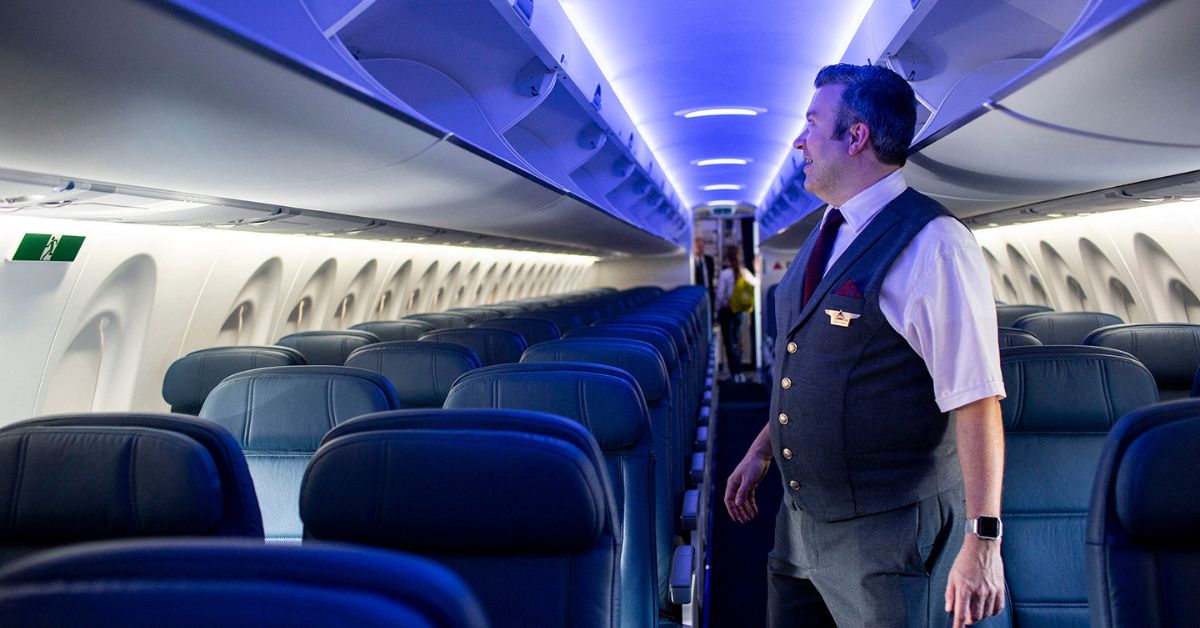
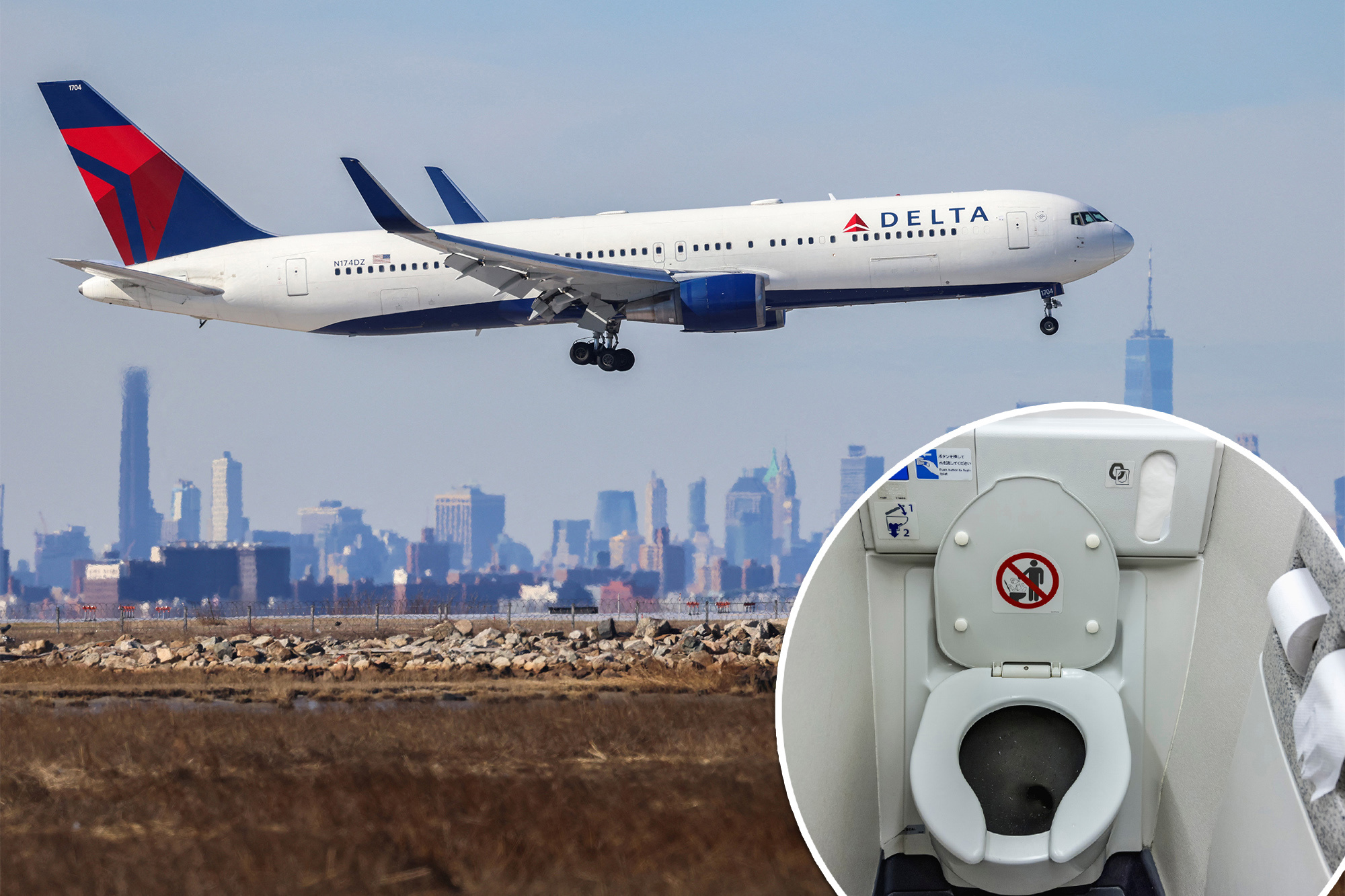
In just a few moments, she realized that she had severe poisoning from food that she suspects was brought on by a hamburger that was not cooked properly the night prior. The initial discomfort soon turned into unstoppable swells of diarrhea, which were quickly followed by vomiting that was violent.
The symptoms began to manifest right as the aircraft was getting ready to depart. Crew members were forced to delay start time while Reinertsen was rushed into the crowded airplane toilet and stayed there throughout the flight.
If illness causes an airplane to be grounded,
Airline personnel are prepared to handle medical emergencies, but stomach problems of this size present a unique problem.
“I was full-body sweating, crying, and my insides were cramping,” Reinertsen declared. “For the next 20 minutes, I had more diarrhea than any human should have in their life.”
Flight attendants soon realized that the plane could not continue operating on its planned routes until it was thoroughly cleaned. According to Reinertsen’s account, a crew member had a quiet conversation with her that the following flight of the aircraft had been cancelled completely due to the possibility of contamination.
Teams of Hazmat personnel landed and conducted a thorough clean of the toilets and cabin. The incident caused United Airlines to reshuffle operations and leave passengers on the next flights without a connection or being rerouted.
Passenger embarrassment goes viral
Reinertsen has since published her story on social media and has received hundreds of millions of people. In a mix of humor and shame, she apologised to all those who’s travel plans were damaged.
“I single-handedly got a flight out of Indianapolis canceled,” she wrote during her viral TikTok video. “If that flight cancellation changed the trajectory of your life in a really negative way, I’m so sorry.”
She said: “They canceled that flight due to me. The hazmat team was required to be brought in and take care of it because they weren’t sure if I’d brought back a virus from Portugal. My biohazard is. I am patient zero.”
This is not an isolated incident
Although the case of Reinertsen is not typical but it’s not the only time stomach-related illnesses caused by air have disrupted travel.
- In September 2023 in 2023, a Delta Airlines flight from Atlanta to Barcelona was forced to reroute because a passenger was suffering from something the airline pilot described as an “biohazard issue” due to extreme diarrhea that spread throughout the aisle of the cabin.
- Another time the Etihad Airways passenger reportedly vomited more than a dozen times following eating an “smelly” meal, forcing the crew to seek medical attention at the time of landing.
- Foodborne illnesses have even resulted in large numbers of passengers falling ill in mid-air. The Detroit flight from Detroit to Amsterdam flight one time made an unscheduled visit to New York after dozens of passengers became sick due to food that was spoiled during the flight.
As per the International Air Transport Association (IATA) airlines shell out millions of dollars every year dealing with clean-ups of contamination as well as lost rotations and compensation for passengers affected by the incident.
The science behind food poisoning
Foodborne illness is among the most frequent dangers to health for travelers. It is reported by the Cleveland Clinic notes that food poisoning could be caused by bacteria like E. Coli, Salmonella, or Campylobacter and also by parasites and viruses.
The most common symptoms are nausea and stomach cramps, diarrhea as well as fever and vomiting – generally appearing within hours after eating food that is contaminated. While the majority of cases are resolved without medical intervention infections may cause dehydration, and even need hospitalization.
“Diarrhea on a plane isn’t just unpleasant — it’s a serious hygiene issue,” explained Dr. Laura Kim, an specialist in infectious diseases. “The closed environment, limited restroom facilities, and shared air systems mean that illnesses can spread more easily if proper precautions aren’t taken.”
Sanitation protocols and airlines
Commercial airlines follow strict guidelines to handle biohazards that are present onboard. If there is contamination in aisles, seats or toilets, the aircraft could be removed from use until full-time cleaning crews have certified it safe for reuse.
Safety analyst for aviation Peter Goetz explains: “Even the illness of one passenger could delay the aircraft for hours or even cause the cancellation of its following scheduled flight. Airline operators must comply with international standards for health to ensure there’s no danger to the next passengers.”
Hazmat cleaners generally make use of industrial disinfectants, which clean up porous materials, if they are contaminated and then ventilate the plane before bringing it back into service. Depending on the severity this procedure can be as low as $10,000 up to $50,000.
The impact on fellow passengers
The story of Reinertsen has been told online with humour, for passengers who were on the plane, the incident was not as amusing. Many passengers expressed their frustration over the delay, while others expressed sympathy for the passenger who appeared to be in a state of distress.
“She looked mortified,” said one of the flyers who spoke on anonymity. “No one wants to be in that position, but it did cause a huge disruption.”
United Airlines has not issued an official statement, however aviation industry insiders have confirmed that these incidents, while uncommon, sometimes require the removal of aircraft from service.
An extended night for Reinertsen
When she finally stepped off the plane, Reinertsen was escorted off the plane on the wheelchair. Dehydrated and weak, she took her bags and then checked into the nearby hotel. However, the experience wasn’t over.
“That night, I had another episode — this time in the hotel bed,” she said. “It was the most depressing moment in my entire life. However, it wasn’t as bad as the guilt of knowing that I had caused a whole flight be cancelled.”
Social media sympathies
Despite her shame The candid admission of Reinertsen online has received huge praise. A majority of viewers were applauded for her honesty about an issue that is often thought to be to be taboo.
One of the comments was: “You didn’t ruin a flight, but you had unfortunate luck. You could have put anyone else the same situation as you.” Another wrote: “Thanks for sharing. This has made me think twice before eating airplane burgers .”
Her story also has sparked larger discussions about food safety in the airline industry as well as the importance of staying hydrated when flying and the necessity for more medical care for long-haul travel.
Lessons learned
Reinertsen has since recovered fully, however the experience made her apprehensive. She avoids cooking meat that is undercooked when she travels and keeps oral salts for rehydration in her hand luggage.
For airlines, this incident is yet another illustration of how delicately the balance is that must be maintained between security of the passengers, hygiene as well as operational effectiveness.
According to as Dr. Kim summed up: “Incidents like this can seem like a miracle however, they reveal the vulnerability of the systems we have in place are. One bad meal could cause a disruption to the lives of hundreds. Prevention is the best way to protect yourself — both on a personal and at the institution at the institutional level.”


